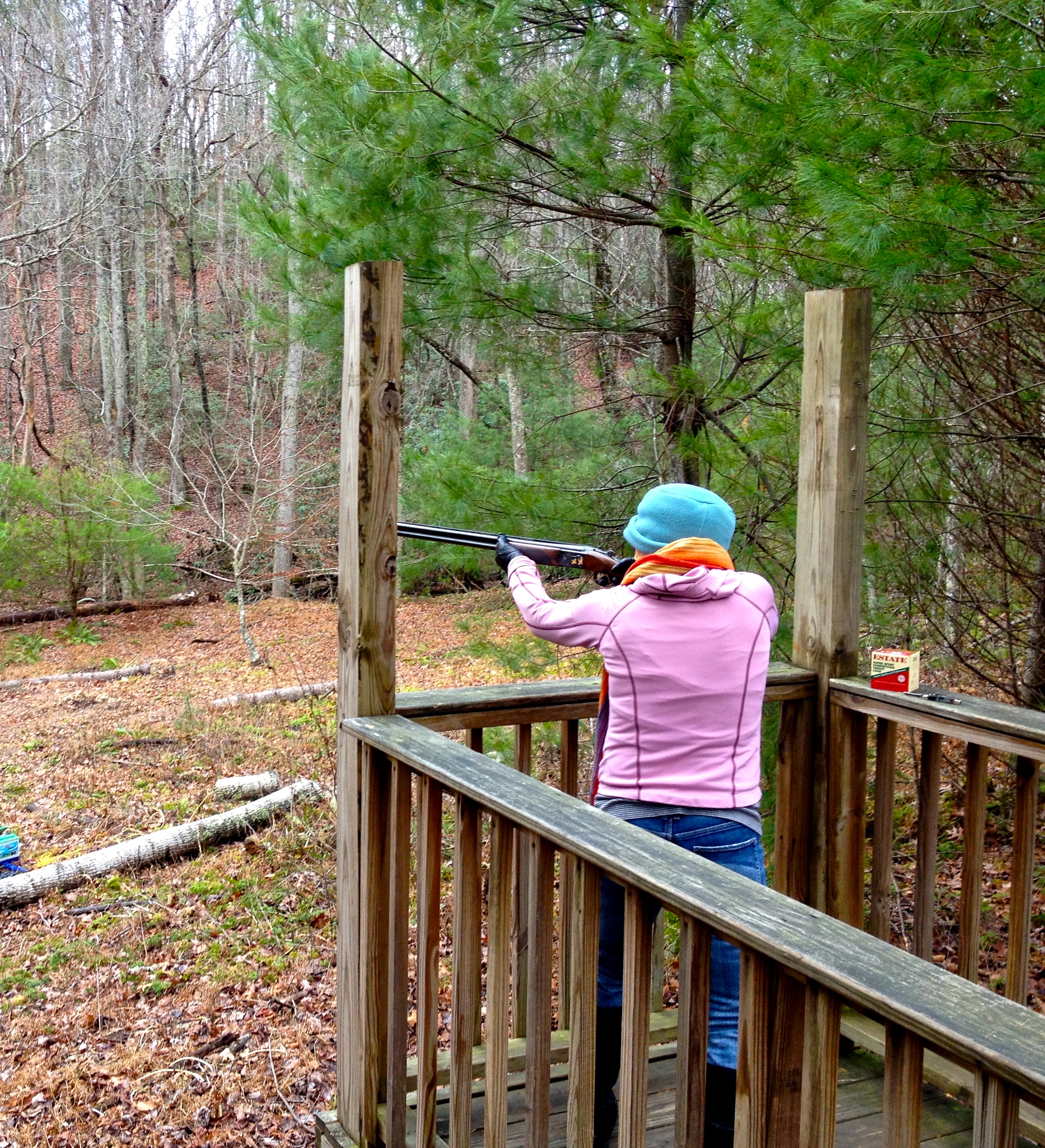Can Food Be Too Local?
While shooting your own dinner is the sine qua non of localness, you should be allowed to draw the line. At Kelmscott Farm, I raised farm animals that met their death for the sake of high-end restaurants. This past weekend, I was shooting birds for sport, and yes, for food. But pulling the trigger put my meal just too close for comfort.
I joined a group of women who, judging from their gun bags and hunting attire, were experienced hunters. I, on the other hand, arrived on the first morning wearing blue jeans, a running jacket, and a puffy and fuzzy winter hat. The motivation for joining these women was to know more about the clamor to eat local food, to be close to food, know its origins and even the sometimes the unglamorous path that food takes to our plates.
Women and guns, though, are a problem. They can be complicated separately, but combine them and everyone gets edgy. Femininity collides with masculine bravado, tenderness careens into violence and brutality, life-giving confronts life-taking and white bleeds into red. Why do women hunt?

Why does anyone hunt? Some hunt to eat. When we lived in Maine, our neighbors were grateful when deer season came, that dusky month or two that enabled them to kill enough deer to fill their freezer until the spring when their garden took over as a source of food. Others hunt for sport. Some say they hunt to gain a sense of control over their circumstances, a connection with their food, an almost primal feeling of making and creating their own sustenance. George Orwell explains why he shot an animal in his 1936 essay “Shooting an Elephant.” But he was commenting on British imperialism and I am only musing about a weekend with women who shoot pheasants, not elephants.
Which is not quite like making your own cheese, or drying your own jerky, or fermenting your own beer. Killing your own meat requires an ability to suffer the sufferance of a living animal, in this case, a beautiful bird with sapphire and amethyst colored feathers, whose wings flapped, their soft sound veering overhead as it was flushed out of the dry grasses.
I was brilliant on the skeet range, carefully aiming the gun, peering down the muzzle, intently waiting for the speck of orange to fly up in the air or skitter across the ground. But when in the field, I held back, fumbling, hesitating, and hoping the others would cover for me.
It appeared that I couldn’t bag a bird. But my eagle eyes enabled me to return to the lodge with a bird, one that I spied in the grasses, pointed out to the pointer dogs, who then scooped it up and mangled it to death, for my benefit. My benefit being the triumphant return to Austin with a cooler and a pheasant, which most thought I shot. Actually, I pointed and the pointers got the point.
So why do women hunt? After spending two days with women who hunt, I gathered a few hints through their conversations around meal times as we enjoyed our quail and venison. They told of past hunts but more than anything, they belonged to a group of other women who hunt in much the same way as men bond over golf or football or a good beer. Perhaps by dwelling on the dissonance created by combining women and guns in the same sentence, we miss the easy association of shared interests, especially for women who are seeking communities outside of book clubs, yoga classes, and child-birthing seminars.
While hunting for my next meal probably won’t be in my future, the idea of getting to know these women and learning how to load a shotgun was time well spent. And all those missed shots and spent bullets raised the possibility that you can be too close to your food, at least as defined by the length of your rifle.
Super piece, Robyn! So many insights into hunting culture, women, Americans and their food, and, oh yes…pheasants! They have disappeared from Hingham. (Hunters? Bird Blight? Too many Pheasants Under Glass??) There is definitely a book to be made of your blog posts. Love the friction between what we think we want and how it feels when we go after it. (Or the dogs go after it.)